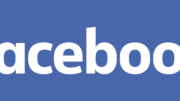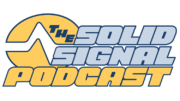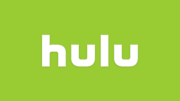Yesterday, Verizon announced that it would be selling its media group, which includes AOL and Yahoo, to a firm called Apollo Global Management. Apollo isn’t a tech company. It’s an investment firm that owns all or part of a variety of companies like ADT, CareerBuilder, Rackspace, Redbox, Shutterfly, Smart & Final, and University of Phoenix.
You could be forgiven if the first thing you thought when reading this news was, “well, they’re done for.” I wouldn’t say “done for,” but I would say they’re well on the way to becoming what I like to call “zombie brands.”
What is a “zombie brand?”
OK, I’ve been trying to get this term off the ground for a long time. I first used it on this blog back in 2013, but I’ve used it far longer than that. The premise is simple. Take a brand that once held the world’s attention. Say, for example, Zenith, Magnavox, Bell+Howell, Westinghouse. These brands commanded the attention of a generation. Eventually though, all things that rise also fall. In the high-stakes world of branding, though, good brand names never disappear. They tend to get sold to ever-shadier enterprises who trade on their past prominence.
If you’ve bought an Amana refrigerator in the last two decades, a Polaroid camera recently, or anything from RCA, you’ve experienced this. All of the companies I’ve mentioned in the last two paragraphs have been sold over and over again. RCA is just a licensing agency that lets anyone use their name for the right price. Most of the others are owned by overseas firms who would never otherwise be able to enter the US markets.
Zombie brands eventually do fade away, but they do so slowly, as the generations who remember them eventually depart this earth. One day, no one will remember Emerson Radio, and the brand will have so little worth that no one will want to buy it. And, that will be the end of them.
The history of AOL and Yahoo
Both companies were once dominant independent entities. AOL was the darling of the early online revolution, once boasting the largest subscriber base of any online service in the United States. It was so big it bought Time Warner’s media empire. But, the purchase proved too much. AOL divested itself of most tech purchases… or put another way Time Warner divested itself of AOL. It was a rare case of a subsidiary eclipsing a parent company.
Verizon bought AOL in 2015 as part of its hopes to compete with AT&T and Comcast. More on that in a minute.
Yahoo more or less owned search in the late 1990s, but their hierarchical method (which put web sites in curated categories) was no match for Google’s algorithms. Almost immediately after Google came on the scene, Yahoo gave up on search and focused on curation with things like news and entertainment pages. They were earlier to the free email party than Google, but their spam management was horrible.
Verizon bought most of Yahoo in 2016, with the intention of turning the combined AOL and Yahoo into a multimedia empire. The hope was to take on content powerhouses like AT&T, Disney, and Comcast. That hope seems to have evaporated.
But are AOL and Yahoo going to be zombie brands?
Not yet, but certainly that’s where it’s heading. Apollo seems to be a fairly respectable company which uses its capital to support viable businesses. Being money managers, they will certainly dump any company that isn’t performing. And sometimes if a company performs very well they’ll sell it. But just because these brands are being sold to a money manager doesn’t mean they’re on the way to oblivion. Or, let me say, this isn’t the reason they are on the road to oblivion.
I think there could be a way forward for AOL, Yahoo, and the other brands in Verizon’s media group. But that way forward doesn’t involve trading on their names. The very essence of a zombie brand is that it has nothing to offer but its name. Harmon Kardon isn’t a zombie brand even though they’re owned by Samsung now. They still put out a pretty good product, although perhaps not as revered as it once was. Zenith is definitely a zombie brand because you’ll find its name on products that belong behind the counter at the drugstore. You wouldn’t think of buying those products with a different name. Zenith is owned by LG, who makes some pretty high-end stuff, but they use the Zenith name for the lowest of the low.
If AOL and Yahoo rise to tech prominence again, it will be despite their names, not because of them. Yahoo’s news and information pages really aren’t that bad, especially their finance. AOL Mail (which is also the platform behind Yahoo Mail) is surprisingly robust now, although it took a massive hack to get them to make changes.
What’s (likely) next
AOL and Yahoo have an opportunity ahead of them. They’ll likely get the resources they need to get better. If they thrive, they’ll probably get sold to a tech company in the next few years. If they can’t hold it together, they’ll get sold to a lesser, probably offshore, company. At that point you can expect the AOL and Yahoo brands to be slathered on the sloppiest splogs on the internet. Eventually they’ll be so bad that modern browsers will label them as malware and that’s when they will disappear.
I hope that’s not going to happen. I’d like to see these one-time titans soar again. My money’s on the opposite, though.





